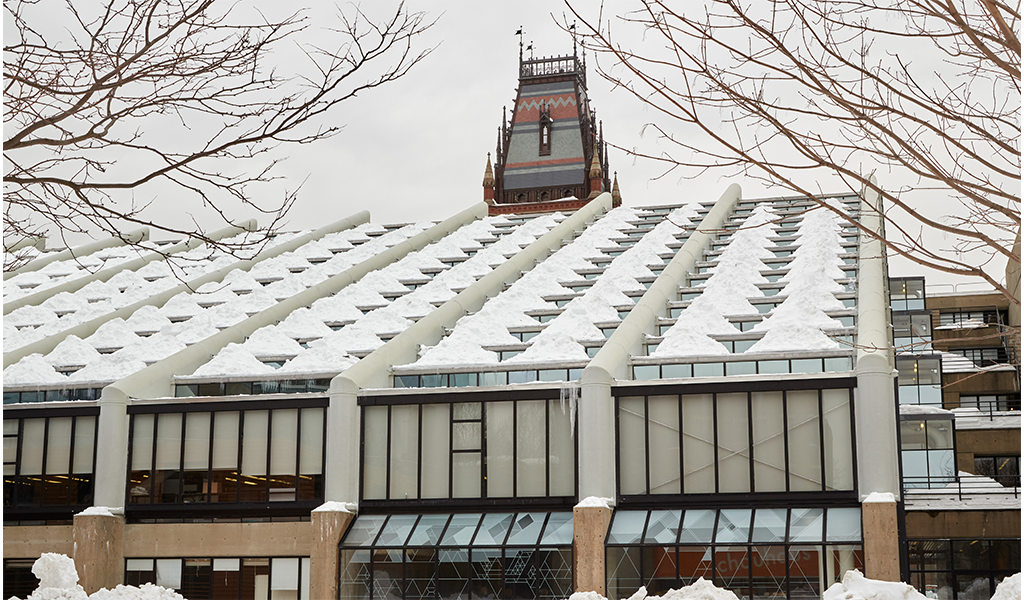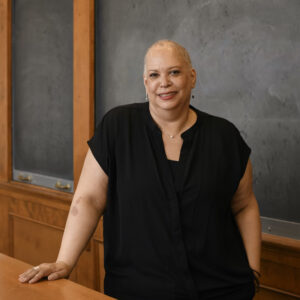GSD Virtual Town Hall: Engaged Citizenry

Design has the power to bring people together. Architects, landscape architects, and planners have an obligation to engage the public in their communities. Where does design and advocacy align and how do we ensure that more designers have a seat at the table? This GSD Virtual Town Hall: Engaged Citizenry discussion explored design as a democratic process.
The Harvard Graduate School of Design hosts visionary leaders who share a commitment to improving our world through civic dialogue while reaching a diverse range of stakeholders and participants.
GSD Dean Sarah M. Whiting, Josep Lluís Sert Professor of Architecture, led a conversation with panelists Hazel Ruth Edwards MAUD ’89, Radcliffe Institute Fellow ’24 and Professor of Architecture at Howard University’s College of Engineering and Architecture, and Belinda Tato, Associate Professor in Practice of Landscape Architecture at the GSD, exploring the value of public participation in shaping the infrastructure where we live, work, and connect. How can the design community effectively engage our communities to improve social interaction and our relationship with the environment while prioritizing sustainability, growth, and resiliency?
View the Webinar Recording
GSD Virtual Town Halls present an opportunity to join Dean Whiting and thought leaders in design to discuss various perspectives on critical topics in our built and natural environments. We invite your participation in the Q&A portion of the event.
“Participation is not an end, it is a means: a powerful tool that establishes new connections and boosts both creativity and the production of new ideas.” (“Making Participation Relevant to Design,” Spring 2024 GSD seminar description by Belinda Tato.)
This event was sponsored by the Office of Development and Alumni Relations.
Questions? Contact [email protected].

Belinda Tato, Associate Professor in Practice of Landscape Architecture
Belinda Tato is an architect, landscape architect, and urban designer. In 2000, she co-founded the Madrid-based firm Ecosistema Urbano, which she also directs. Ecosistema Urbano specializes in urban consultancy, architecture, public space quality assessment, and urban transformation processes.
Their work has developed around the design of public space with a focus on the improvement of bioclimatic conditions in contexts and climates as diverse as Norway, Florida, and Bahrain.
In parallel, Ecosistema Urbano has been developing participatory tools and techniques to involve citizens in the creative and transformational processes of urban environments.
During the last decade, Ecosistema has successfully experimented with social software, communication platforms, and the possibilities offered by new technologies to achieve the creation of more democratic urban environments.
Since 2000, Ecosistema Urbano has received prizes and awards on more than 45 occasions, and their work has been covered by media from more than 40 countries.
Belinda Tato has led workshops, lectured, and taught at the world’s most prestigious institutions. She is currently an Associate Professor in Practice of Landscape Architecture at Harvard University’s Graduate School of Design, where she has been teaching since 2010.

Hazel Ruth Edwards MAUD ’89, Radcliffe Institute Fellow ’24 and Professor of Architecture at Howard University’s College of Engineering and Architecture
Hazel Ruth Edwards, a professor of architecture at Howard University’s College of Engineering and Architecture, works to improve livability for all citizens and increase diverse voices in the design and planning fields. Edwards coauthored The Long Walk: The Placemaking Legacy of Howard University (Moorland-Spingarn Research Center, 1996), a history of the campus’s physical development that became the framework for its 1998 campus plan while generating funded research and published work on place-making at other American historically Black colleges and universities (HBCUs). Her essay “On Hilltop High: The Enduring and Nurturing Landscapes of Howard University” appears in Landscape and the Academy (Harvard University Press, 2019), edited by John Beardsley and Daniel Bluestone.
At Radcliffe, Edwards is exploring the connections between the historic distinction of land as “ours” (Black) and “theirs” (white) articulated by sociocultural and spatial-justice practices that have impacted Howard since its founding. Was it a common practice at the time for other HBCUs to have the campus serve as an oasis from the injustices Black people faced?
Edwards holds a PhD in regional planning from the University of Illinois Urbana-Champaign, a master of architecture in urban design from Harvard University, and a bachelor of architecture from Howard University. Edwards is currently a member of the GSD Alumni Council. She is certified with the American Institute of Certified Planners and was elected to their College of Fellows. In 2021, Edwards was appointed to the US Commission of Fine Arts by President Joseph Biden. She received Architectural Record’s 2022 Women in Architecture Design Leadership Award in the Educator category.
